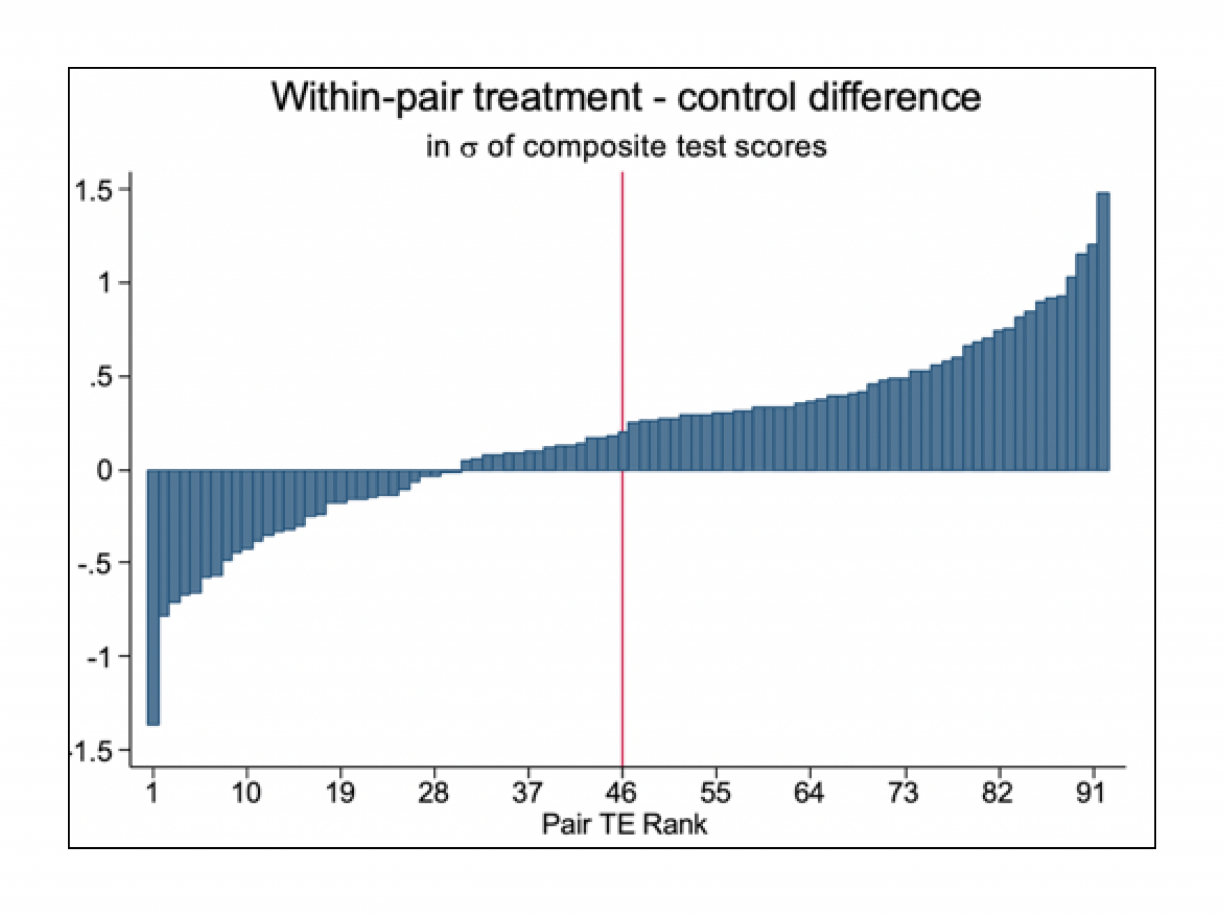Carmen Belafi
Blavatnik School of Government, University of Oxford
Blog
In last week’s RISE Online Presentation Series, Wayne Sandholtz presented new findings on a crucial question for the politics of learning: Do voters reward politicians who significantly improve learning outcomes through reform efforts? Common sense would suggest that politicians direct a lot of their time and effort into improving the lives of their citizens, at least in democracies, where elections are supposed to create a powerful incentive to be responsive to voters’ preferences. But Sandholtz’s results indicate that in politics, as often, matters are a bit more complicated.
His study is built around a randomized school reform that was instituted as a public private partnership in Liberia in 2016, called Partnership Schools for Liberia. The reform was evaluated in earlier research and had shown significant increases in teacher attendance and student test scores in English and math. Sandholtz complements this with data on electoral results in the subsequent elections to analyse the link between the success of reforms and voters’ behaviour.
Let me put the spoiler right here at the beginning: On average, the presidential candidate of the party responsible for the reform lost electoral support near the treated schools. Why did this happen?
As is often the case, the reform did not have the same effect on improving test scores everywhere. Sandholtz was able to measure this variation because the randomization of the reform was conducted within pairs of schools that looked similar prior to treatment. While the reform was successful on average, the variation in the treatment effect was substantial, and about a third of treated schools experienced declines in learning relative to their control pair.

Source: Sandholtz 2020 (see full presentation here)
These pairings allowed Sandholtz to look more closely at people’s local experiences of the reform, and compare this to local electoral outcomes, moving away from broad strokes on general political sentiments and trends. He shows that voters were savvy, and recognized whether the reforms worked in their local context. In areas where the reform had large improvements on learning, voters rewarded the incumbent party’s presidential candidate. Where the reform resulted in declines in learning, the candidate suffered electoral losses. This indicates that voters in general did not merely oppose (and punish) any change in the status quo. Rather, they were responsive to how well the reform worked in their environment.
If the reform improved test scores modestly on average, it is puzzling that only the largest improvements resulted in electoral gains. It seems that voters’ direct assessments were offset by a second trend.
In treatment schools, teachers were less likely to support the candidate of the party that introduced the reforms. But not only did they revoke their direct political support for the incumbent party through voting, they also reduced some of the indirect political support, such as participating in election campaigning.
This effect was particularly strong among unionized teachers. National teacher union groups strongly opposed the reform, among other factors, because it was designed as a public private partnership.* Unions then had the means to mobilize their members against it. This is a credible concern in the formation of political will for any politician facing democratic (re)election.
* A more detailed discussion on the concerns regarding the reform can be found in the reform evaluation by Romero et al. 2020.
Sandholtz’s study is a great illustration of a common political trade-off: the reform elicited support from voters where it worked best, but evoked opposition from powerful groups and stakeholders, perhaps because patronage networks were disrupted. This shows that improving services is risky when it means shifting from a more patronage-based strategy to a service delivery-based strategy for political survival. Politicians who want to change things up risk aggravating interest groups in the education system that have vested interests in upholding the status quo and with whom politicians have often built mutually beneficial clientelist or patronage networks.
The good news is that if policies and reforms work well and have large positive effects, it is likely that voters will reward this improvement, and this reward can be big enough to outweigh backlashes of interest groups opposing change. The bad news is that politicians often cannot be sure how well reforms will work or how much opposition they may face.
Ultimately, it is important to recognize that improving service quality involves political risks for those in office. In order to mitigate some of the risks and uncertainty around change, politicians need more reliable guidance and dependable recommendations. Research has a role to play in providing stepping stones to facilitate the leap from patronage to service delivery, and to enable change for the benefit of more learning and better education for all.
RISE blog posts and podcasts reflect the views of the authors and do not necessarily represent the views of the organisation or our funders.